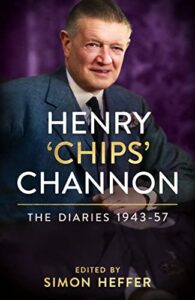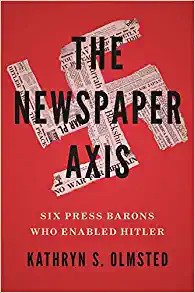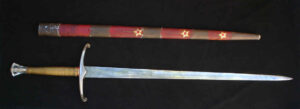
Finest Hour 201
“Mr. Churchill Is Wrong”
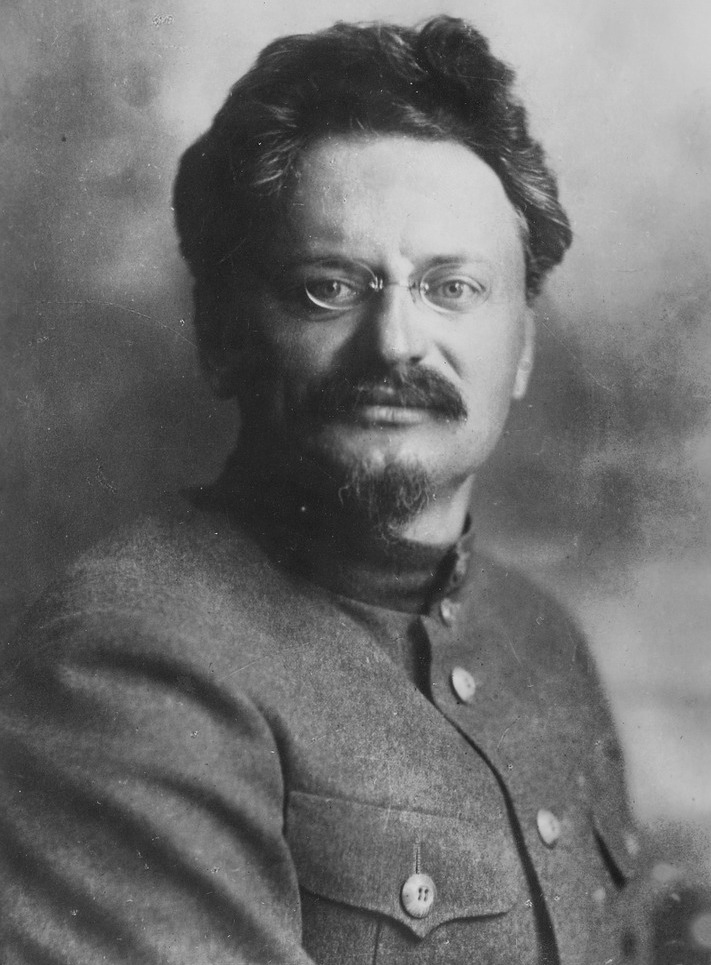
Trotsky in 1924
September 25, 2024
Leon Trotsky Reviews The Aftermath
Finest Hour 201, First Quarter 2023
Page 13
By Leon Trotsky
This article includes the original subheadings and first appeared in the 20 April 1929 edition of John O’London’s Weekly, a copy of which is on file as CHAR 8/265 at the Churchill Archives Centre, Cambridge.
Upon publication in 1929 of The Aftermath, the fourth volume of Winston Churchill’s history of the First World War known as The World Crisis, the editor of John O’London’s Weekly invited former Soviet Commissar for War Leon Trotsky (1879–1940) to review the book in which Churchill described his unsuccessful attempt while Britain’s Secretary of State for War “to strangle Bolshevism in its cradle.”
The editor made it clear that the newspaper had “no sympathy whatever with Lenin’s fantastic political and economic ideas, which have proved disastrous for Russia,” but recognized that Trotsky stood out “as a great historical figure, whose actions reverberated throughout the world” and that it was “of importance, therefore, to try to form a just estimate of the man.”
“No living man knew Lenin better,” the editor continued in explaining why the book review had been commissioned from the former Russian leader, who had just been driven into exile in Turkey by Joseph Stalin. The editor concluded in his introduction to this text that “whatever view one may hold of his [Trotsky’s] past actions or his present beliefs, he is a brilliant writer, and we are confident that our readers will welcome this contribution to a controversy of more than passing interest and significance.”

2024 International Churchill Conference
In 1918–1919 Mr. Churchill attempted to overthrow Lenin by force of arms. In 1929 he attempts a psychological and political portraiture of him in his book The Aftermath. Perhaps he was hoping thereby to secure some sort of literary revenge for his unsuccessful appeal to the sword. But his methods are no less inadequate in the second mode of attack than they were in the first.
“His [Lenin’s] sympathies cold and wide as the Arctic Ocean. His hatreds tight as the hangman’s noose,” writes Mr. Churchill. Verily, he juggles with antitheses as an athlete with dumb-bells. But the observant eye soon notices that the dumb bells are painted cardboard, and the bulging biceps are eked out with padding.
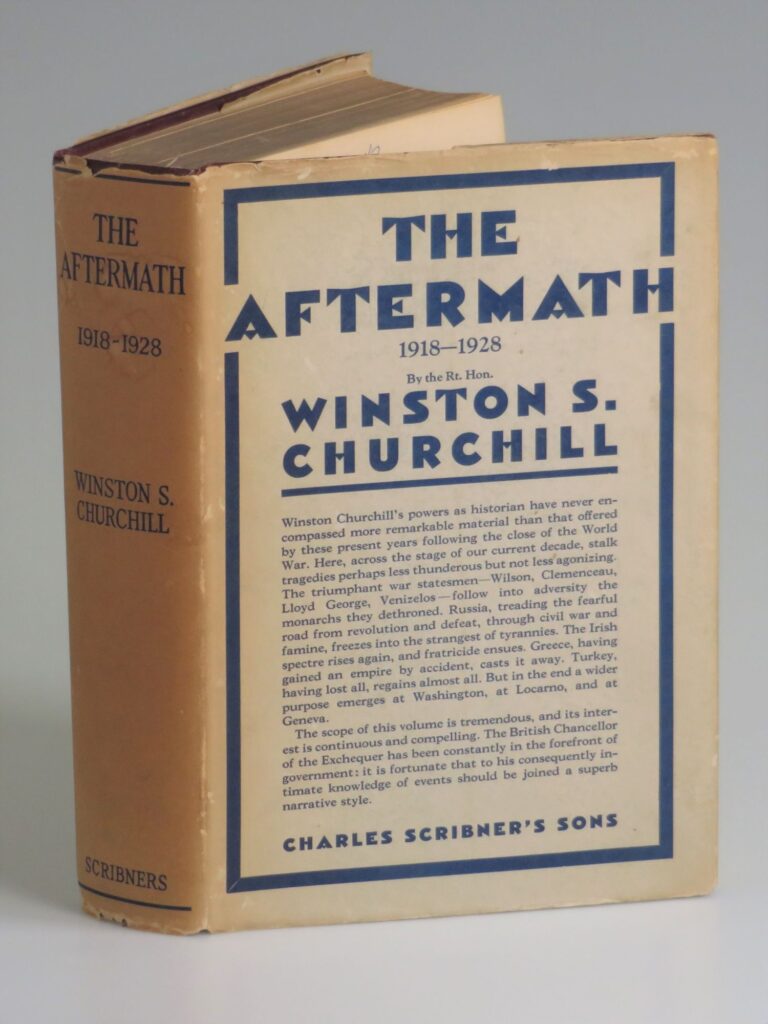
Lenin and His Brother
The true Lenin was instinct with moral force—a force whose main characteristic was its absolute simplicity. To try to assess him in terms of stage athletics was bound to spell failure.
Mr. Churchill’s facts are miserably inaccurate. Consider his dates, for instance. He repeats a sentence, which he has read somewhere or other, referring to the morbid influence exercised on Lenin’s evolution by the execution of his elder brother. He refers the fact to the year 1894. But actually the attempt against [Tsar] Alexander III’s life was organized by Alexander Ulianof (Lenin’s brother) on March 1st, 1887. Mr. Churchill avers that in 1894 Lenin was sixteen years of age. In point of fact, he was then twenty-four, and in charge of the secret organization at Petersburg. At the time of the October revolution he was not thirty-nine, as Mr. Churchill would have it, but forty-seven years old. Mr. Churchill’s errors in chronology show how confusedly he visualizes the period and people of which he writes.
The Collapse of the Army
But when from the point of view of chronology and fisticuffs we turn to that of the philosophy of history, what we see is even more lamentable.
Mr. Churchill tells us that discipline in the Russian army was destroyed, after the February revolution, by the order abolishing the salute to officers. That was the point of view of discontented old generals and ambitious young subalterns; otherwise, it is merely absurd. The old army stood for the supremacy of the old classes, and was destroyed by the revolution. When peasants had taken away the landowners’ property the peasants’ sons could hardly continue to serve under officers who were sons of landowners. The army is no mere technical organization, associated only with marching and promotion, but a moral organization, founded on a definite scheme of mutual relations between individuals and classes. When a scheme of this kind is upset by revolution, the army unavoidably collapses. It was always thus….
Mr. Churchill grants that Lenin had a powerful mind and will. According to [Churchill’s friend and colleague] Lord Birkenhead, Lenin was purely and simply non-existent: what really exists is a Lenin myth (see his letter in The Times, February 26th, 1929). The real Lenin was a nonentity upon which the colleagues of Arnold Bennett’s Lord Raingo could look down contemptuously. But despite this one difference in their appraisement of Lenin, both Tories are exactly alike in their utter incapacity to understand Lenin’s writings on economy, on politics, and on philosophy— writings that fill over twenty volumes.
A Master of Languages
I suspect that Mr. Churchill did not even deign to take the trouble carefully to read the article on Lenin which I wrote for the Encyclopaedia Britannica in 1926. If he had, he would not have committed those crude, glaring errors of dates which throw everything out of perspective.
One thing Lenin could not tolerate was muddled thought. He had lived in all European countries, mastered many languages, had read and studied and listened and observed and compared and generalized. When he became the head of a revolutionary country, he did not fail to avail himself of this opportunity to learn, conscientiously and carefully. He did not cease to follow the life of all other countries. He could read and speak fluently English, German, and French. He could read Italian and a number of Slavonic languages. During the last years of his life, though overburdened with work, he devoted every spare minute to studying the grammar of the Czech language in order to have access, without intermediaries, to the inner life of Czechoslovakia.
Years of Preparation
What can Mr. Churchill and Lord Birkenhead know of the working of this forceful, piercing, tireless mind of his, with its capacity to translate everything that was superficial, accidental, external into terms of the general and fundamental? Lord Birkenhead, in blissful ignorance, imagines that Lenin had never thought of the password: “Power to the Soviets,” before the Revolution of February, 1917. But this problem of the Soviets and of their possible functions was the very central theme of the work of Lenin and of his companions from 1905 onwards, and even earlier.
By way of completing and correcting Mr. Churchill, Lord Birkenhead avers that if Kerensky had been gifted with a single ounce of intelligence and courage, the Soviets would never have come into power. Here is, indeed, a philosophy of history that is conducive to comfort! The army falls to pieces in consequence of the soldiers having decided not to salute the officers whom they meet. The contents of the cranium of a Radical barrister happen to have been one ounce short, and this deficiency is enough to lead to the destruction of a pious and civilized community! But what indeed can a civilization be worth which at the time of dire need is unable to supply the needful ounce of brain?
Besides, [Alexander] Kerensky did not stand alone. Around him was a whole circle of Entente officials. Why were they unable to instruct and inspire him, or if need was, replace him? To this query Mr. Churchill can find but this reply: “The Statesmen of the Allied nations affected to believe that all was for the best, and that the Revolution constituted a notable advantage for the common cause”—which means that the officials in question were utterly incapable of understanding the Russian revolution—or, in other words, did not substantially differ from Kerensky himself.
To-day, Lord Birkenhead is incapable of seeing that Lenin, in signing the Brest-Litovsk peace, had shown any particular foresight. He considers, to day, that the peace was then inevitable. In his own words, “only hysterical fools” could have imagined that the Bolsheviks were capable of fighting Germany: a very remarkable, though tardy, acknowledgment!
“Hysterical Fools”
The British Government of 1918, and, indeed, all the Entente Governments of that time, categorically insisted on our fighting Germany, and when we refused to do so replied by blockade of, and intervention in, our country. He may well ask, in the energetic language of the Conservative politician himself: Where were, at that moment, the hysterical fools? Was it not they who decided the fate of Europe? Lord Birkenhead’s view would have been very far-seeing in 1917, but I must confess that I, for one, have little use for far-sight which asserts itself twelve years after the times when it could have been of use.
Mr. Churchill brings up against Lenin—and it is the very keystone of his article—statistics of the casualties of the civil war. These statistics are quite fantastic. This, however, is not the main point. The victims were many on either side. Mr. Churchill expressly specifies that he includes neither the deaths from starvation nor the deaths from epidemics. In his would be athletic language he declares that neither Tamerlane nor Jenghiz Khan were as reckless as Lenin in expenditure of human lives. Judging by the order he adopts, one would hold that Mr. Churchill considers Tamerlane more reckless than Jenghiz Khan. In this he is wrong; statistical and chronological figures are certainly not the strong point of this Finance Minister. But this is by the way.
The Toll of War
In order to find examples of mass expenditure of human life, Mr. Churchill must needs go to the history of Asia in the thirteenth and fourteenth centuries. The great European war of 1914–1918, in which ten million men were killed and twenty million crippled, appears to have entirely escaped his memory. The campaigns of Jenghiz Khan and Tamerlane were child’s play in comparison with the doings of civilized nations from 1914 to 1918. But it is in a tone of lofty moral indignation that Mr. Churchill speaks of the victims of civil war in Russia—forgetting Ireland, and India, and other countries.
In short, the question is not so much the victims as it is the duties and the objects for which war was waged. Mr. Churchill wishes to make clear that all sacrifices, in all parts of the world, are permissible and right so long as the object is the power and sovereignty of the British Empire—that is, of its governing classes. But the incomparably lesser sacrifices are wrong which result from the struggles of peoples attempting to alter the conditions under which they exist—as occurred in England in the seventeenth century, in France at the end of the eighteenth, in the United States twice (eighteenth and nineteenth centuries), in Russia in the twentieth century, and as will occur more than once in the future.
The Power of the Masses
It is vainly that Mr. Churchill seeks assistance in the evocation of the two Asiatic warrior chiefs, who both fought in the interests of nomadic aristocracies, but yet aristocracies coveting new territories and more slaves—in which respect their dealings were in accordance with Mr. Churchill’s principles, but certainly not with Lenin’s. Indeed, we may recall that Anatole France, the last of the great humanists, often expressed the idea that of all kinds of the bloodthirsty insanity called war, the least insane was civil war, because at least the people who waged it did so on their own accord and not by order.
Mr. Churchill has committed yet another mistake, a very important one and, indeed, from his own point of a view, a fatal one. He forgot that in civil wars, as in all wars, there are two sides: and that in this particular case, if he had not come in on the side of a very small minority, the number of the victims would have been considerably less. In October, we conquered power almost without a fight. Kerensky’s attempt to reconquer it evaporated as a dewdrop falling on red-hot stone. So mighty was the driving power of the masses, that the older classes hardly dared attempt to resist.
The Red Terror
When did the civil war, with its companion, the Red Terror, really start? Mr. Churchill being weak in the matter of chronology, let us help him. The turning point was the middle of 1918. Led by the Entente diplomatists and officers, the Czechoslovakians got hold of the railway line leading to the East. The French Ambassador, [Josèphe] Noullens, organized the resistance at Yaroslavl. Another foreign representative organized deeds of terror and an attempt to cut off the water supply of Petersburg. Mr. Churchill encourages and finances [anti Bolshevik leaders, including Boris] Savinkof; he is behind [General Nikolai] Judenich. He determines the exact dates on which Petersburg and Moscow are to fall. He supports [General Anton] Denikin and [General Pyotr] Wrangel. The monitors of the British fleet bombard our coast. Mr. Churchill proclaims the coming of “fourteen nations.” He is the inspirer, the organizer, the financial backer, the prophet of civil war: a generous backer, a mediocre organizer, and very bad prophet.
He had been better advised not to recall the memories of those times. The number of the victims would have been not ten times, but a hundred or a thousand times smaller but for British guineas, British monitors, British tanks, British officers, and British food supplies.
Ten Years’ Trial
Mr. Churchill understands neither Lenin nor the duties that lay before him. His lack of comprehension is at its worst when he attempts to deal with the inception of the new economic policy. For him, Lenin thereby gave himself the lie. Lord Birkenhead adds that in ten years the very principles of the October revolution were bankrupt. Yes: he who in ten years failed to do away with the miners’ unemployment, or to palliate it, expects that in ten years we Russians can build up a new community without committing one mistake, without one flaw, without one setback; a wonderful expectation which gives us the measure of the primitive and purely theoretical quality of the honourable Conservative’s outlook. We cannot foretell how many errors, how many set-backs, will mark the course of history; but to see, amid the obstacles and deviations and set-backs of all kinds, the straight line of historical evolution was the achievement of Lenin’s genius. And had the Restoration been successful at the time, the need for radical changes in the organization of the community would have remained as great.
The Return of the Stuarts
When the Stuarts came back to power, they had far better reasons to think of a bankruptcy of Cromwell’s principles. Yet, despite the triumphant Restoration, despite the many ebbs and flows of the following periods, the contest between Whigs and Tories, Free-traders and Protectionists, it was the Cromwellian leaven that gave rise to the new England. And it is only in the last quarter of the nineteenth century that this ferment began to lose its potency, whence the unavoidable decrease of the part played by England in the world’s affairs.
Subscribe
WANT MORE?
Get the Churchill Bulletin delivered to your inbox once a month.
